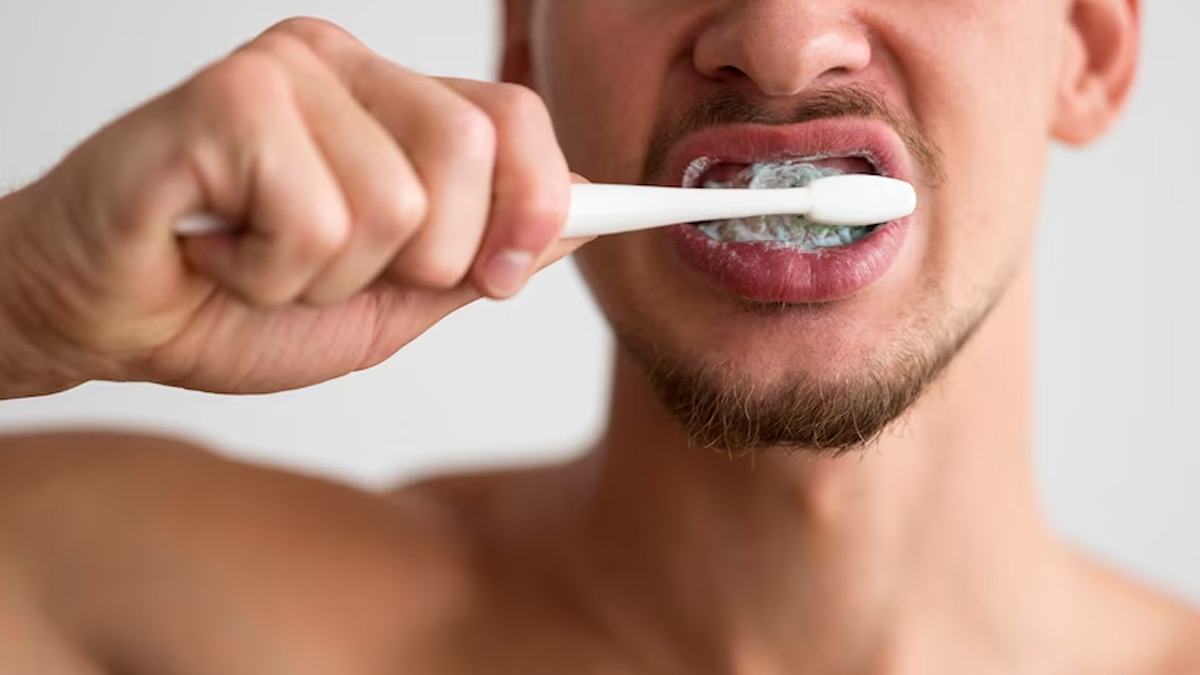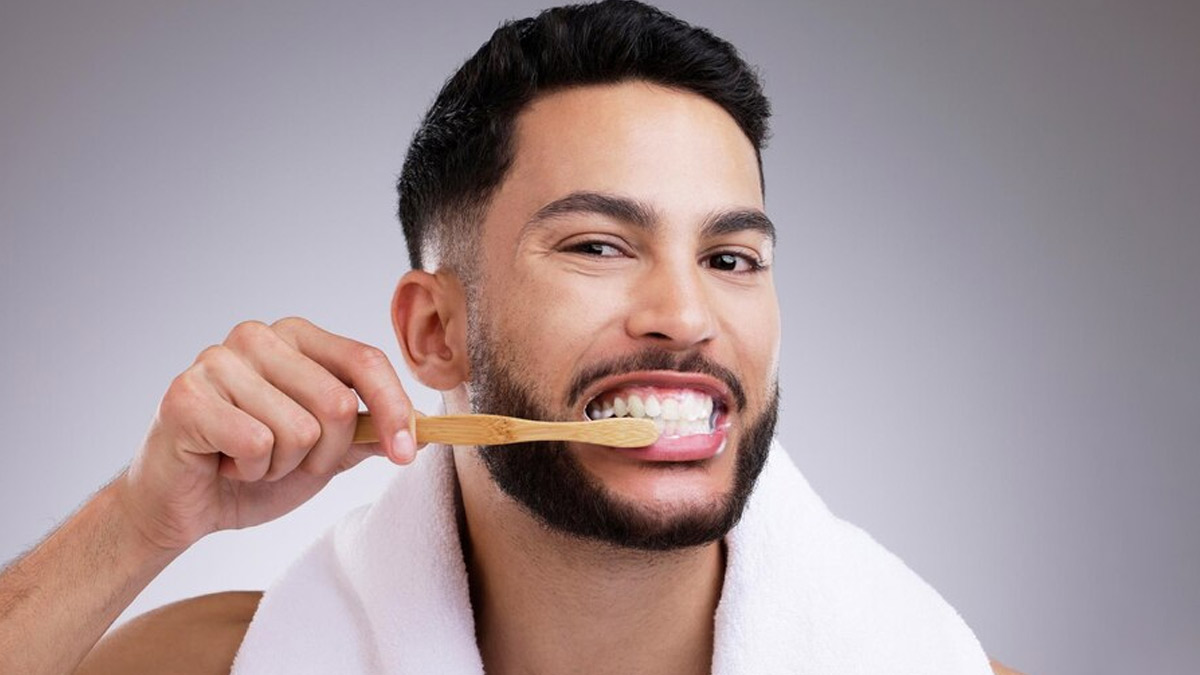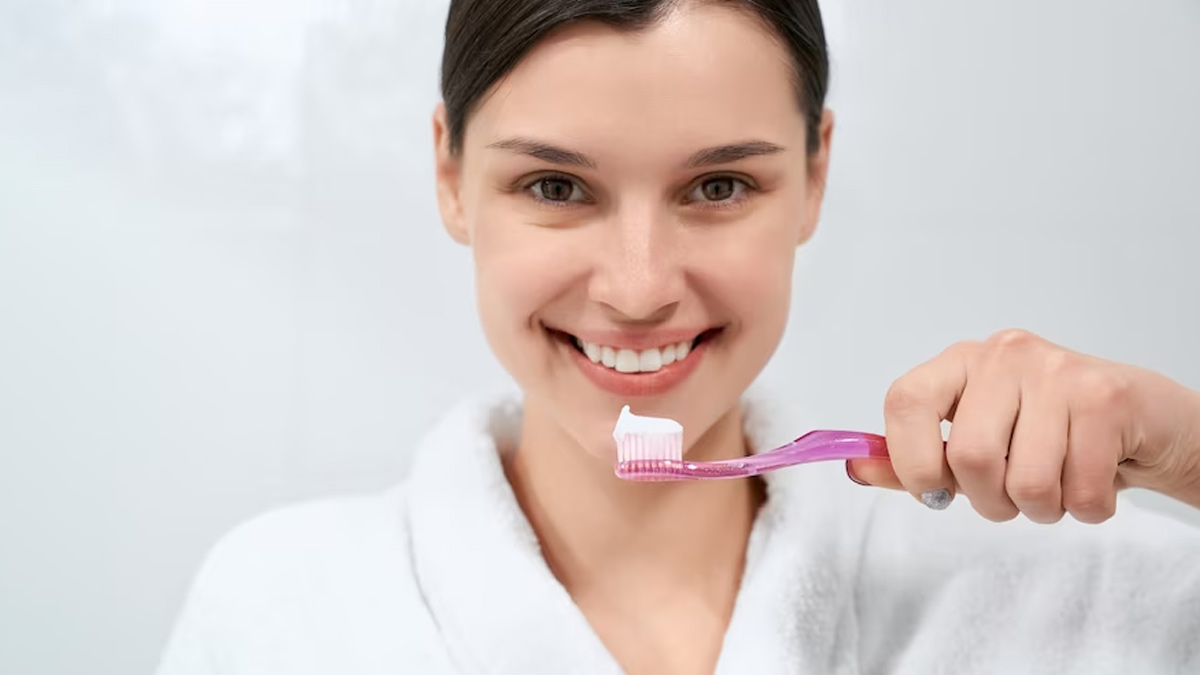
To maintain strong, healthy teeth, experts recommend brushing twice a day, flossing daily, using mouthwash and limiting sugary foods and beverages that contribute to tooth decay. But people also wonder whether brushing before breakfast is better than brushing after or vice versa. Speaking with the OnlyMyHealth team, Dr Mohit Tambi, BDS And Director at Tambi Dental Clinic, Jaipur, said, “The question of whether it's better to brush your teeth before or after breakfast is a matter of personal preference and dental hygiene habits,” adding that each has its own pros and cons.
Also Read: Does Your Body Odour Smell Like A Fish? You Might Be Suffering From Trimethylaminuria
Should You Brush Before Or After Breakfast?

The American Dental Association (ADA) recommends brushing your teeth twice a day for a full 2 minutes both times. Additionally, it advises to replace toothbrushes every three to four months or more often if the bristles are visibly matted or frayed.
However, when it comes to deciding whether to brush before or after breakfast, Dr Tambi claims that both approaches have their pros and cons, and the choice ultimately depends on individual preferences and specific dental needs. Here are some factors to consider:
Brushing before breakfast
Fresh breath: Brushing before breakfast helps eliminate morning breath, which can be unpleasant.
Plaque removal: Brushing before eating prevents food particles from sticking to your teeth, making it easier to remove plaque and maintain good oral hygiene.
Acid protection: Some acidic foods and beverages, such as citrus fruits and juices, can temporarily soften tooth enamel. Brushing before consuming them helps avoid brushing when your teeth are more vulnerable.
Time management: Brushing before breakfast can save time for those with busy morning routines.
Brushing after breakfast
Acid neutralisation: Brushing after breakfast helps remove food particles and neutralize the acids produced by certain foods, reducing the risk of enamel erosion and tooth decay.
Fresh taste: Brushing after breakfast can leave you with a fresh taste in your mouth, making it a more pleasant start to your day.
Plaque removal: Brushing after eating removes any remaining food particles and plaque buildup from your teeth, promoting better oral health.
Protective fluoride: If you use fluoride toothpaste, brushing after breakfast allows the fluoride to coat your teeth, providing protection against tooth decay throughout the day.
Also Read: Viral Versus Bacterial Infection: Why You Need To Know The Difference
How Long After Breakfast Should You Wait To Brush

The ADA recommends waiting 60 minutes after eating before you brush, especially after having acidic foods, such as orange juice and other citrus fruits. You can also have water, rinse your mouth or chew sugar-free gum after eating to clean your teeth before you brush.
Oral Hygiene Habits To Follow
Regardless of whether you choose to brush before or after breakfast, it's essential to follow good oral hygiene practices, said Dr Tambi. These include:
Brushing technique
Use a soft-bristled toothbrush and fluoride toothpaste. Brush gently in a circular motion, covering all surfaces of your teeth and gums. Brush for at least two minutes, twice a day.
Flossing
Clean between your teeth with dental floss or interdental brushes at least once a day to remove plaque and food debris from areas your toothbrush can't reach.
Mouthwash
Consider using an antimicrobial mouthwash after brushing and flossing to help kill bacteria and freshen your breath. Consult your dentist for specific recommendations.
Regular dental visits

Schedule regular check-ups with your dentist for professional cleanings and to address any oral health concerns.
Balanced diet
Eat a balanced diet, limit sugary and acidic foods, and avoid frequent snacking, as they can contribute to tooth decay.
Limit staining substances
Minimise the consumption of substances that can stain your teeth, such as coffee, tea, tobacco, and red wine.
Bottomline
Taking care of your dental health is crucial. It helps prevent oral diseases such as tooth decay and gum disease, promotes proper digestion through effective chewing, and contributes to a confident smile and good self-esteem.







